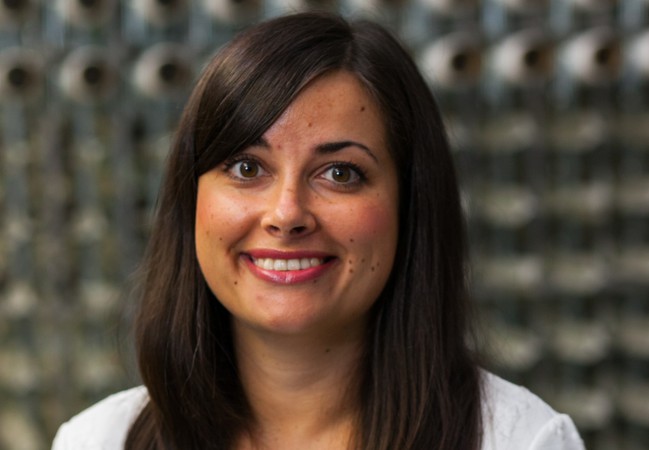Use of cookies
Cookies help us to provide our services. By using our website you agree that we can use cookies. Read more about our Privacy Policy and visit the following link: Privacy Policy
Date 2021.03.07


On 8 March, we celebrate International Women’s Day! We would like to take the moment to introduce a researcher from our network, representing all female scientists who make a significant contribution every day to the innovative strength of our international, industry-driven research network: Dr. rer. nat. Anna Große from the Saxon Textile Research Institute e.V. (STFI) in Chemnitz (Germany).
Dr. Große has been working at the STFI in the department “International Cooperation/Transfer” since 2014. Her work focuses on the acquisition and processing of international and national research projects in the field of technical textiles. She is a CORNET expert and knows how the projects go.
The initiation and processing of CORNET projects is a very varied and interesting task for me as a scientist at STFI. I’ve been working on this type of project for several years now and it’s still exciting. Every project is different and a new challenge. You constantly learn something new, both in practical implementation and in scientific work. I think that’s great and gives me the opportunity to continuously grow.
CORNET is open for any kind of research topic and gives applicants the freedom to develop and implement their own project ideas. You have to meet scientific requirements of the projects, but at the same time, you have a close exchange with companies that accompany the whole process. This gives us the chance to discuss the development results of the projects with representatives from the industry (especially SMEs) and to adapt them to their needs. In this way, the research has a direct practical relevance, and new ideas and advanced research approaches emerge as well.
The cooperation with international research partners, companies and associations that CORNET enables is an additional plus point for us. Realising interdisciplinary cooperation across borders is of particular interest for our institute which has been actively encouraging international activities on European level for 20 years now. Thanks to CORNET, we have already been able to build long-term partnerships, but also continuously expand our international network.


Each project has its own charme, it is difficult to highlight a single one. But I think projects such as ProGeo and ProGeo2 were able to address a broad interest group outside of the research landscape. Together with our Polish partner, the University of Bielsko-Biala (ATH), we have developed rope-like and grid-shaped geotextiles from regional raw materials such as sheep’s wool, hay, straw and textile waste. The geotextiles can be installed on steep slopes in order to guarantee effective protection against weather-related soil erosion.
In the ongoing CORNET project NanoHyb, we are currently working on the development of hybrid textile structures based on nanofibres with a barrier effect against bacteria and viruses. In view of the current COVID-19 pandemic, this topic has, of course, gained special importance. The currently constantly evolving requirements for barrier materials that are used in pandemic protection will be incorporated into our ongoing research work.
The STFI is a very active partner within the AiF and CORNET network, focusing on the exchange with companies and research institutions at home and abroad and using its know-how to strengthen companies in the regional textile industry. In addition to classic textile technologies, the institute’s R&D activities also aim at innovative and unconventional solutions for a wide variety of fields of application.
An overview of current CORNET projects at STFI can be found on the STFI website.
Pictures: © Sächsisches Textilforschungsinstitut e.V. (STFI), CORNET / AiF